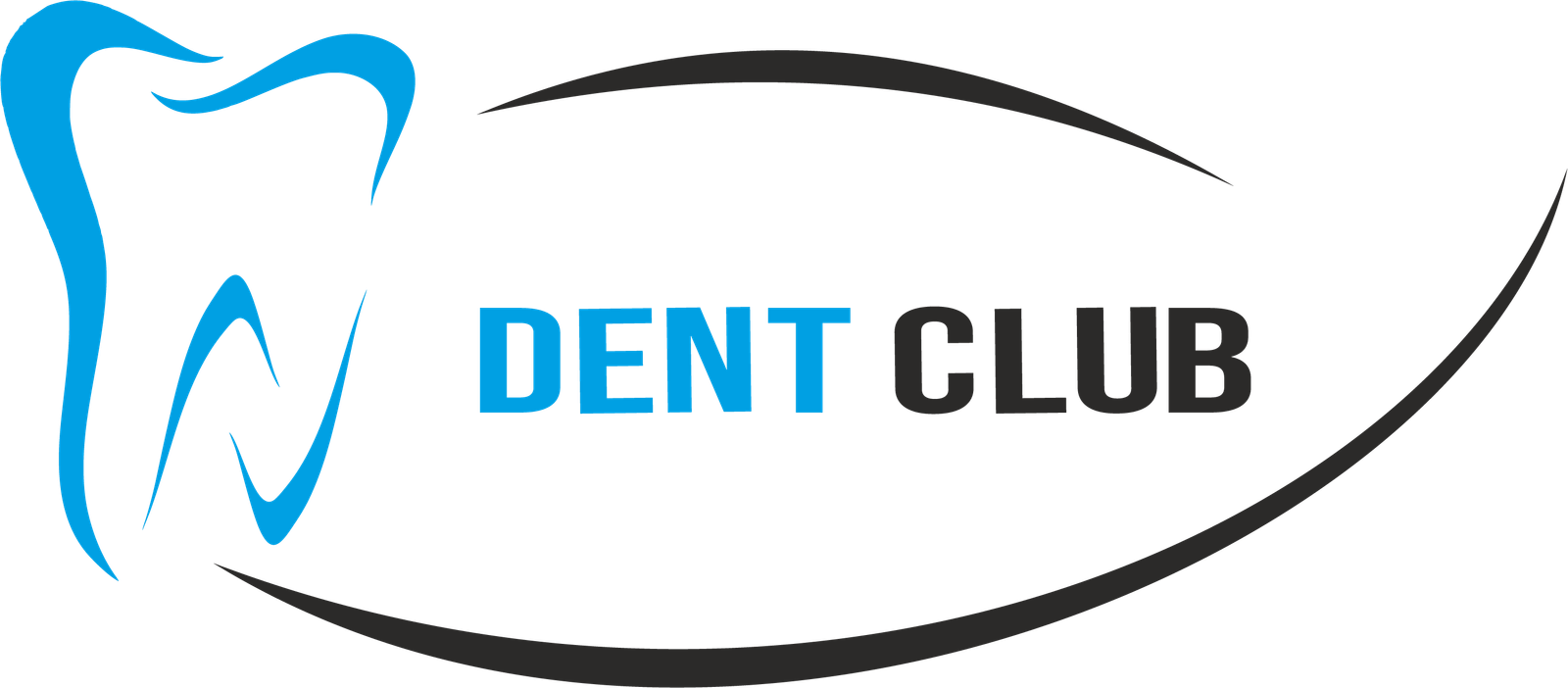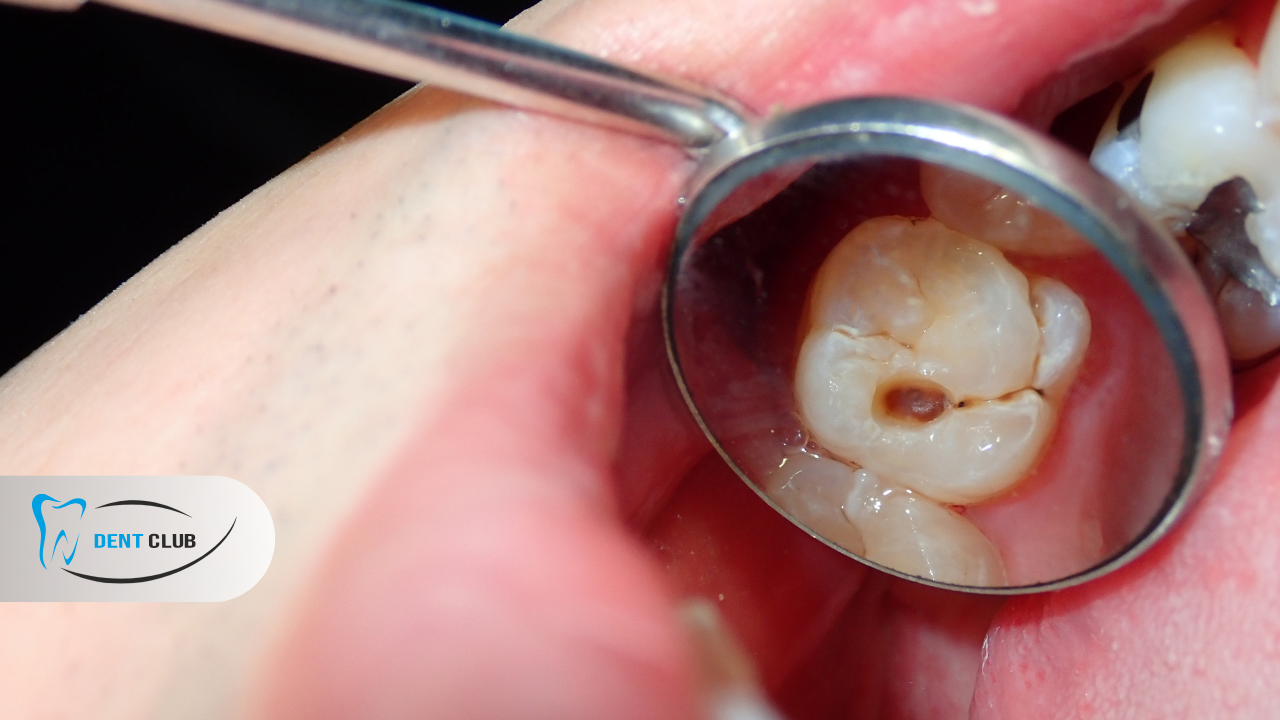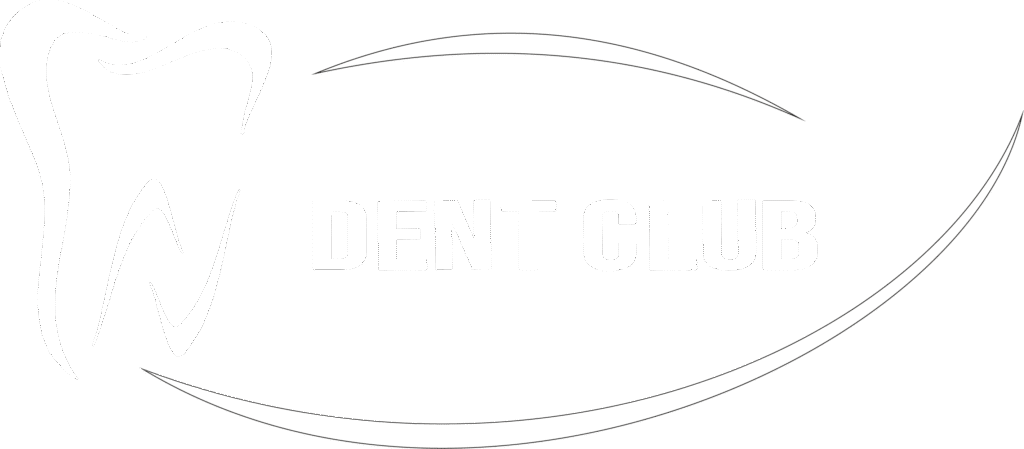The Secrets to Preventing Tooth Decay: Hello to a Healthy Smile with Dent Club!
Hello dear Dent Club family! Today, we’re going to talk about a topic that concerns all of us, but sometimes we don’t take seriously enough: tooth decay. Believe me, these tiny problems can turn into huge ones if not handled correctly. Pain, soreness, sleepless nights, maybe even tooth loss… Nobody wants to experience these, right? That’s precisely why we want to share everything you need to know about completely eliminating tooth decay from your life and maintaining your oral and dental health at the highest level, in a friendly and understandable language. If you’re ready, let’s take the first step towards healthy and sparkling smiles!
What is Tooth Decay and Why Does It Occur? On the Trail of a Mysterious Enemy!
Tooth decay is like a silent, stealthy enemy of our teeth. It usually doesn’t show itself until pain or a noticeable stain appears, which makes it insidious. So, how do these cavities appear? The story actually begins with bacteria. These naturally occurring bacteria in our mouths see the sugary and starchy foods we eat and drink as a feast. As they consume these foods, the bacteria start to produce acid. These acids slowly erode the outermost and hardest layer of our teeth, called enamel. As the enamel layer weakens, the protective shield of the tooth disappears, and the acids penetrate deeper, paving the way for decay to form.
Simply put: Sugar + Bacteria = Acid –> Tooth Decay.
Are there other factors that accelerate or trigger this process? Absolutely!
- Frequent Sugary and Acidic Consumption: Cola, fizzy drinks, fruit juices (yes, even natural ones can be acidic!), sweets, cookies… When we consume these frequently, our teeth are constantly exposed to acid.
- Inadequate Oral Hygiene: In individuals who don’t have a habit of brushing and flossing, food particles and bacteria accumulate more easily, which accelerates plaque formation. Plaque is a sticky film full of bacteria that adheres to the tooth surface. If not cleaned regularly, it hardens into tartar, which becomes almost impossible to remove with brushing.
- Dry Mouth: Saliva is a natural defense mechanism that neutralizes acids in our mouths and cleans food particles. In people experiencing dry mouth (due to certain medications, illnesses, or age), saliva production decreases, increasing the risk of decay.
- Tooth Structure: Some people’s tooth surfaces may have more grooves and pits than others. In such areas, food particles accumulate more easily and are harder to clean, which increases the risk of decay.
- Genetic Predisposition: Yes, while some people are thought to be genetically more prone to cavities, genetic factors alone are not decisive. The main determinants are our oral care habits and diet.
Tooth decay usually doesn’t cause pain initially, which is why it often goes unnoticed. It can start as a small spot and grow over time. If the decay penetrates the outermost layer of the tooth, the enamel, and reaches the dentin layer, symptoms like hot-cold sensitivity begin to appear. If it progresses further, it can reach the nerves, leading to severe pain and infections. Therefore, early diagnosis and treatment are crucial!
5 Golden Rules for Preventing Tooth Decay: Dent Club is With You!
So, how do we fight this insidious enemy? Don’t worry, as Dent Club, we offer you the most effective ways to kick tooth decay out of your life. Here are 5 golden rules you should follow to have a healthy mouth and smile:
1. Proper Brushing Techniques: By the Power of the Brush!
Brushing your teeth isn’t just a “done and dusted” task. Proper technique is the key to effective cleaning.
- When and How Much? Brush your teeth at least twice a day, in the morning after breakfast and at night before bed. Remember that each brushing session should last at least 2 minutes. You can even use a timer to ensure you hit this duration. Remember, haste makes waste!
- Toothbrush Selection: Choose a soft-bristled toothbrush. Hard-bristled brushes can damage your gums and cause enamel erosion over time. Electric toothbrushes can also be more effective than manual ones if used correctly. Especially oscillating or rotating head models have the potential to remove plaque more easily. Make sure to change your toothbrush every 3 months or when its bristles start to deform.
- Brushing Technique:
- Hold your toothbrush at about a 45-degree angle to your gums.
- Brush the tooth surface and gumline with gentle, circular or short back-and-forth strokes. Avoid pressing too hard!
- Brush each tooth individually or in small groups.
- Make sure to brush all surfaces of your teeth, including the outer, inner, and chewing surfaces.
- When brushing the inner surfaces of your front teeth, hold the brush vertically and clean with up-and-down motions.
- Don’t forget to gently brush your tongue. Bacteria on the tongue can contribute to bad breath and negatively affect overall oral health.
- Toothpaste Selection: When choosing toothpaste, opt for products that contain fluoride, which strengthens your tooth enamel and acts as a shield against cavities. Fluoride replaces minerals in the tooth enamel, creating a more resistant structure. If you have sensitivity or gum problems, you can use specialized toothpastes recommended by your dentist.
2. Pay Attention to Flossing: Reach Where the Brush Can’t!
No matter how great your toothbrush is, it can’t fully reach between your teeth and along the gumline. This is where dental floss comes in! Dental floss cleans plaque and food particles that accumulate in these hard-to-reach areas, preventing cavity formation.
- When and How Often? Floss once a day, preferably before bed.
- How to Use? Cut about 18-20 inches (45-50 cm) of dental floss. Wrap most of the floss around your middle fingers and guide it with your thumbs and index fingers.
- Gently slide the floss between each pair of teeth using a sawing motion. Be careful not to cut your gums!
- Curve the floss into a C-shape against one tooth and gently slide it under the gumline.
- Pull the floss up and down, cleaning the tooth. Repeat the same process for the surface of the other tooth.
- Make sure to use a clean section of floss for each tooth gap.
- Types of Dental Floss: Waxed, unwaxed, tape, floss picks… There are many types of dental floss available. You can try different types to find the one that suits you best. For some people, flossing can be challenging; in this case, alternatives like interdental brushes or a water flosser can be considered. Interdental brushes can be very beneficial, especially for those with bridges or implants.
3. Regulate Your Eating Habits: What Goes into Your Mouth Reflects in Your Smile!
Dental health isn’t just about brushing. Everything we eat and drink directly affects our oral health. Our eating habits play a significant role in the formation of tooth decay.
- Beware of Sugary and Acidic Foods! As mentioned above, sugary and acidic foods and drinks are like a party zone for bacteria. Try to consume these types of foods as little as possible. If you do consume them, drinking plenty of water or rinsing your mouth immediately afterward can help to mitigate the effect of the acids. Or, even better, brush your teeth.
- Tooth-Friendly Foods:
- Dairy Products: Calcium and phosphate-rich foods like cheese, yogurt, and milk help strengthen tooth enamel. Cheese, in particular, can help balance the pH level in the mouth, reducing acid effects.
- Fibrous Foods: Fibrous fruits and vegetables like apples, carrots, and celery help naturally clean tooth surfaces when chewed and increase saliva production.
- Water: Drinking plenty of water keeps your mouth moist, cleans food particles and bacteria, and neutralizes acids.
- Nuts: Almonds, walnuts, and similar nuts contain beneficial minerals for dental health.
- Reduce Snacking: Frequent snacking means your teeth are constantly exposed to acid. Reduce snack consumption between main meals, and if you do snack, choose tooth-friendly options.
4. Regular Oral Care and Check-ups: The Expert Touch of Dent Club!
No matter how good your personal oral care is, professional help is always necessary. Dental check-ups allow for early detection of even small cavities that haven’t yet shown symptoms, preventing much larger problems.
- Check-up Every 6 Months: At Dent Club, our recommendation is to have a regular dental check-up every 6 months. During these check-ups, your dentist can identify potential cavities, gum diseases, and other oral problems at an early stage. Remember, early diagnosis is crucial for both the ease and cost of treatment.
- Professional Dental Cleaning (Scaling): Despite regular brushing and flossing, plaque and tartar can accumulate on tooth surfaces and below the gumline. These accumulations cannot be removed with home cleaning. Professional dental cleaning (scaling or known as dental calculus removal) is performed by your dentist using special instruments. This procedure cleans your teeth from plaque and tartar, significantly reducing the risk of cavities and gum disease.
- Fluoride Applications: Especially in children and adults with a high risk of cavities, fluoride varnish or gel applied by a dentist can further strengthen tooth enamel and provide extra protection against cavities.
5. Use Fluoride Oral Care Products: Strengthen the Enamel!
Fluoride is like a superhero for dental health. It strengthens the structure of tooth enamel, making it more resistant to acid attacks.
- Fluoride Toothpaste: As we mentioned above, using fluoride toothpaste is a fundamental step. There are many toothpastes with different fluoride concentrations on the market. Your dentist can recommend the appropriate fluoride concentration for your age and cavity risk.
- Fluoride Mouthwashes: Fluoride mouthwashes can provide additional protection, especially for those with a high risk of cavities or experiencing dry mouth. They help fluoride reach areas that the toothbrush cannot. However, remember that mouthwashes do not replace brushing and flossing; they are only supportive products. There is usually an age limit for fluoride mouthwash use in children, so be sure to consult your dentist.
Additional Tips for Preventing Tooth Decay: Small but Effective Steps for a Healthy Smile!
In addition to the 5 golden rules above, there are some extra tips you can apply in your daily life:
- Chewing Sugar-Free Gum: Sugar-free gums, especially those containing xylitol, increase saliva production, help maintain the mouth’s pH balance, and aid in cleaning food particles. Xylitol also inhibits the growth of some bacteria.
- Drinking Plenty of Water: Water is indispensable not only for our general health but also for our oral health. It keeps the mouth moist, reduces the effect of bacteria and acids.
- Avoiding Smoking and Alcohol Consumption: Smoking and alcohol can lead to dry mouth and weaken the immune system, paving the way for gum diseases and thus cavities. Avoiding these habits, if possible, will significantly improve your oral health.
- Mouthguards (for Bruxism): If you have a habit of grinding your teeth at night (bruxism), your teeth may experience wear and cracks. This can make teeth more vulnerable to cavities. A night guard recommended by your dentist can help protect your teeth.
- Dry Mouth Management: Some medications or illnesses can cause dry mouth. If you are experiencing dry mouth, you can talk to your dentist to learn about products or methods that can increase saliva flow.
Frequently Asked Questions (FAQs): Dent Club Answers All Your Questions!
We’ve compiled and answered the most frequently asked questions about tooth decay for you:
1. What are the symptoms of tooth decay?
Tooth decay usually doesn’t show symptoms initially. However, as it progresses, the following symptoms may appear:
- Tooth Sensitivity: You may feel a sudden and sharp sensitivity, especially to hot, cold, sweet, or acidic foods and drinks.
- Visible Cavities: You may notice brownish, black, or whitish spots or small pits on the tooth.
- Pain and Throbbing Sensation: When the decay approaches or reaches the nerve (pulp) of the tooth, you may feel a throbbing or sharp pain, often while eating or even when doing nothing.
- Bad Breath: Cavities can lead to bacterial accumulation, causing bad breath.
- Food Getting Trapped Between Teeth: Gaps created in the teeth can cause food to get trapped and lead to discomfort.
2. Is cavity formation genetic?
Genetic predisposition can play a role in the formation of tooth decay to some extent. For example, some people may have a more protective saliva composition or a harder tooth enamel structure. However, the main cause is not genetic, but rather poor oral hygiene habits and diet. So, even if you have a genetic predisposition, you can significantly prevent cavities by taking the right steps. Oral hygiene and nutrition are much stronger determinants than genetic factors.
3. How can tooth decay be prevented in children?
Tooth decay in children can progress faster than in adults and lead to more serious consequences. To prevent cavities in children, the following should be considered:
- Early Brushing Habits: Start brushing as soon as the first tooth erupts, using a soft baby toothbrush and a tiny amount of fluoride toothpaste (rice grain size). After 3 years old, a pea-sized amount of toothpaste can be used.
- Age-Appropriate Fluoride Toothpaste Use: Choose toothpastes with a fluoride concentration suitable for your child’s age.
- Regular Dental Check-ups: Take your child for their first dental visit after their first tooth erupts or at the latest by age 1. Regular check-ups allow for early detection of cavities and the application of preventive treatments (fluoride varnish, pit and fissure sealants).
- Controlled Consumption of Sugary Foods: Limit the consumption of sugary snacks, fizzy drinks, and fruit juices. Giving milk or fruit juice in a bottle before bed, in particular, increases the risk of “baby bottle tooth decay.”
- Pit and Fissure Sealant Applications: The deep grooves (fissures) on the chewing surfaces of molars are prone to food particle accumulation and cavity formation. Pit and fissure sealants, applied by a dentist, seal these grooves, preventing cavity formation.
4. What happens if tooth decay is not treated?
Untreated tooth decay deepens over time and can lead to serious problems:
- Severe Pain: When decay reaches the nerve (pulp) of the tooth, it can cause unbearable pain.
- Abscess Formation: The infection can spread, leading to inflammation and abscess formation in the tooth root or surrounding tissues. This can be accompanied by facial swelling, fever, and general malaise.
- Tooth Loss: Advanced decay can weaken the tooth structure so much that the tooth cannot be saved and needs to be extracted.
- Spread: Decay in one tooth can spread to adjacent teeth or other areas.
- Systemic Infections: Oral infections, if left untreated, can spread to other parts of the body, leading to systemic health problems such as heart disease or difficulty controlling diabetes.
5. Is it possible to completely prevent tooth decay?
Yes, it is largely possible! As we mentioned above, with proper oral care habits and regular dental check-ups, cavity formation can be almost entirely prevented. While there’s no 100% guarantee, by consistently following these steps, you can minimize the risk of cavities and achieve a healthy smile. Remember, preventive dentistry is always easier, cheaper, and more comfortable than restorative dentistry!
The Path to a Healthy Smile Goes Through Dent Club!
Dear Dent Club family, we’ve seen together how serious tooth decay can be and how easily it can be prevented. Remember, your oral and dental health is a reflection of your overall body health. A healthy mouth means a healthy body!
As Dent Club Dental Polyclinic, we are here for you and your family to have healthy smiles. With our expert dental team, state-of-the-art equipment, and friendly staff, we are here for all your oral and dental health needs. You can always contact us to make an appointment for your regular check-ups and to get detailed information on any topic you are curious about.
Wishing you healthy and sparkling smiles that last a lifetime! 😊


